'The Buccaneers' Creator Knows Why You (Still) Love Period Dramas
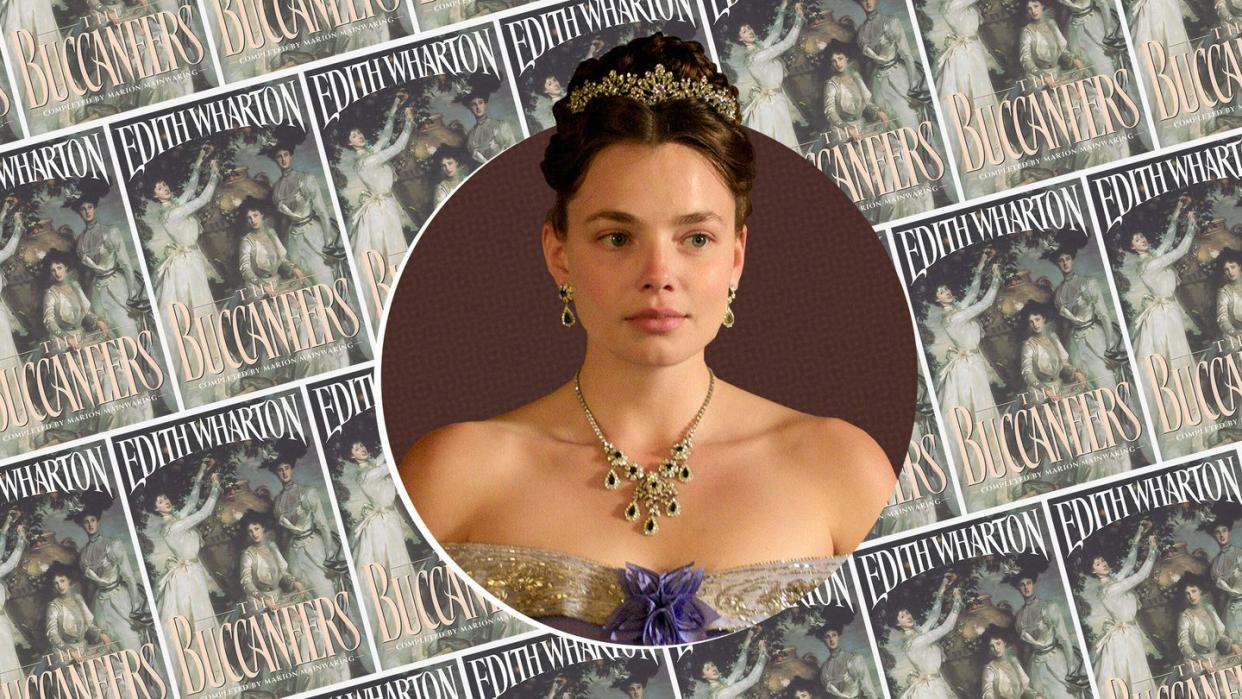
"Hearst Magazines and Yahoo may earn commission or revenue on some items through these links."
Edith Wharton's final novel, The Buccaneers, was unfinished at the time of her death in 1937. The following year, that incomplete novel was published, and decades later, writer Marion Mainwaring would complete The Buccaneers, based on Wharton's notes. Now, Katharine Jakeways is turning Wharton's text into a luscious, beautiful television adaption.
"What really drew me to it in the first place, apart from Edith Wharton's amazing writing, is the way that she created the characters," Jakeways tells Town & Country. "On the page, they are every bit as vibrant and modern feeling as they are on screen. She did all the hard work of that, really. She was writing it in the 1930s, and she'd set it fifty years previously. She was already trying to make the girls feel modern for a contemporary audience. She was doing a similar job to us—we just had a bit further to take the girls."
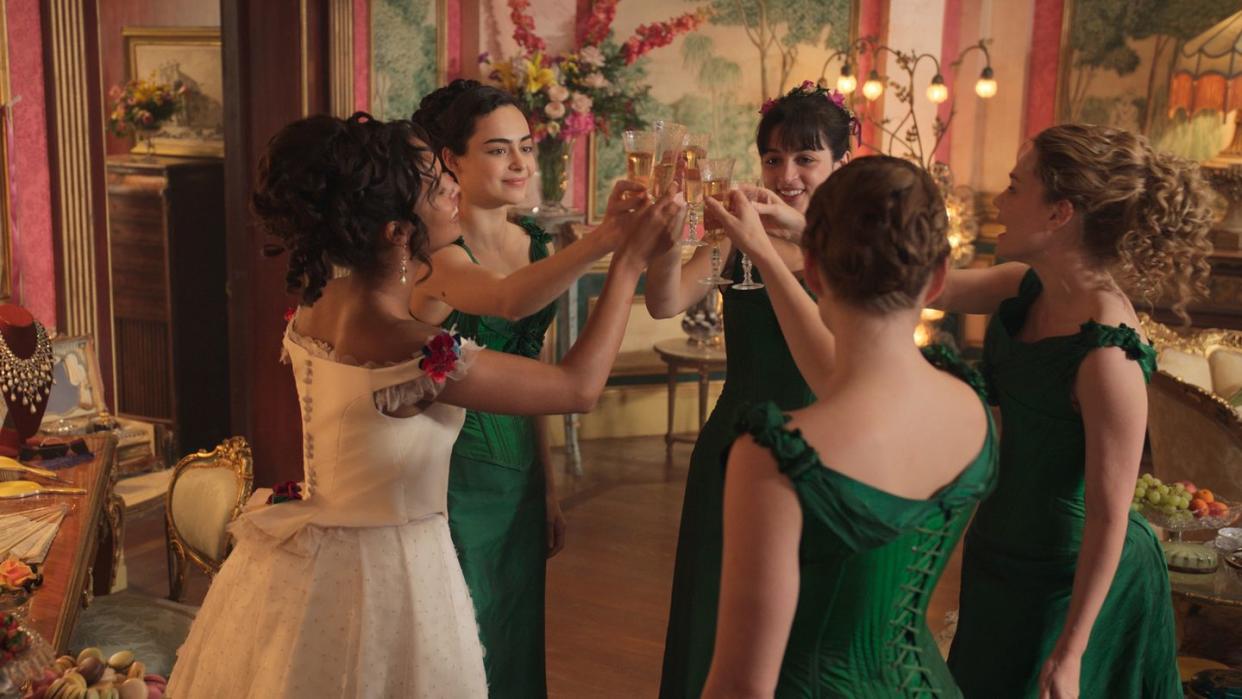
Now, Jakeways is taking the "girls"—Nan, Jinny, Connie, Lizzy, and Mabel—into 2023 with her Apple TV+ adaptation, with a contemporary all-female soundtrack that features the likes of Taylor Swift. Ahead of the premiere, the creator, executive producer, and writer spoke with T&C about the timelessness of Wharton's work, which character changed the most from page to screen, and why she thinks audiences still love period dramas.
Edith Wharton has the ability make her characters feel so modern. Where did you begin in your adaptation process for The Buccaneers?
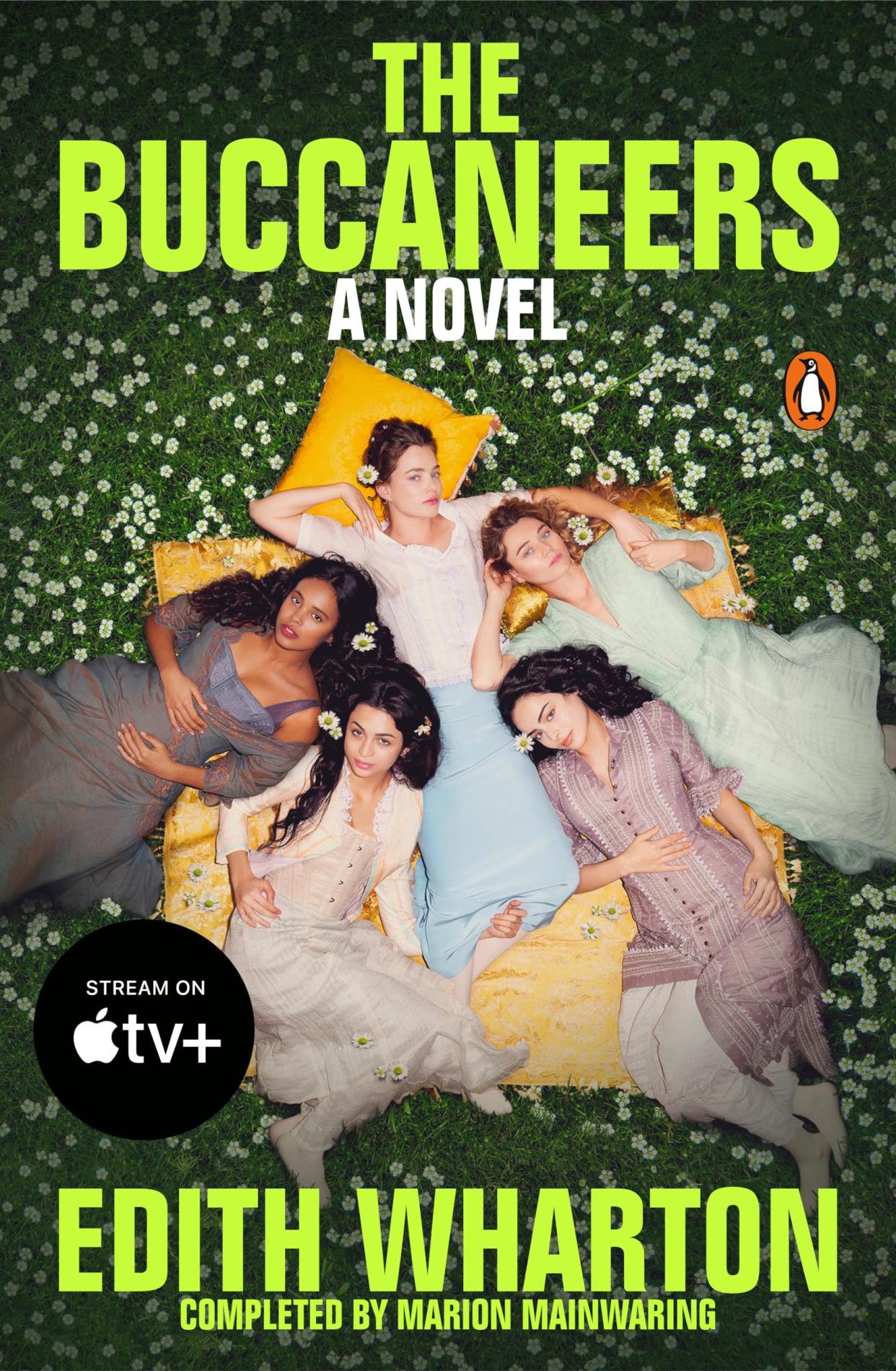
The Buccaneers: A Novel
amazon.com
$12.99
It's extraordinary, isn't it? And god knows she was a wonderful writer and observer of the human condition, and of the way that people are around each other. Our job was to continue that and to make that feel as real as possible now. Many of the stories in the book are ones that we have used some aspect of, but there are stories in our adaptation that we have invented. We've used the novel as an inspiration, and the first third of the book is our jumping off point, then we can take the characters in any direction.
We've used some storylines of relationships and experiences that we wanted to include, which I hope will feel quite surprising and unusual to period drama fans because. We've used some sort of types of relationships, both good and bad, which have been happening, and have been experiences that people and women have had for centuries, but haven't always been talked about and people haven't always had the language for them. There were some relationships that we wanted to include, which aren't in the book.
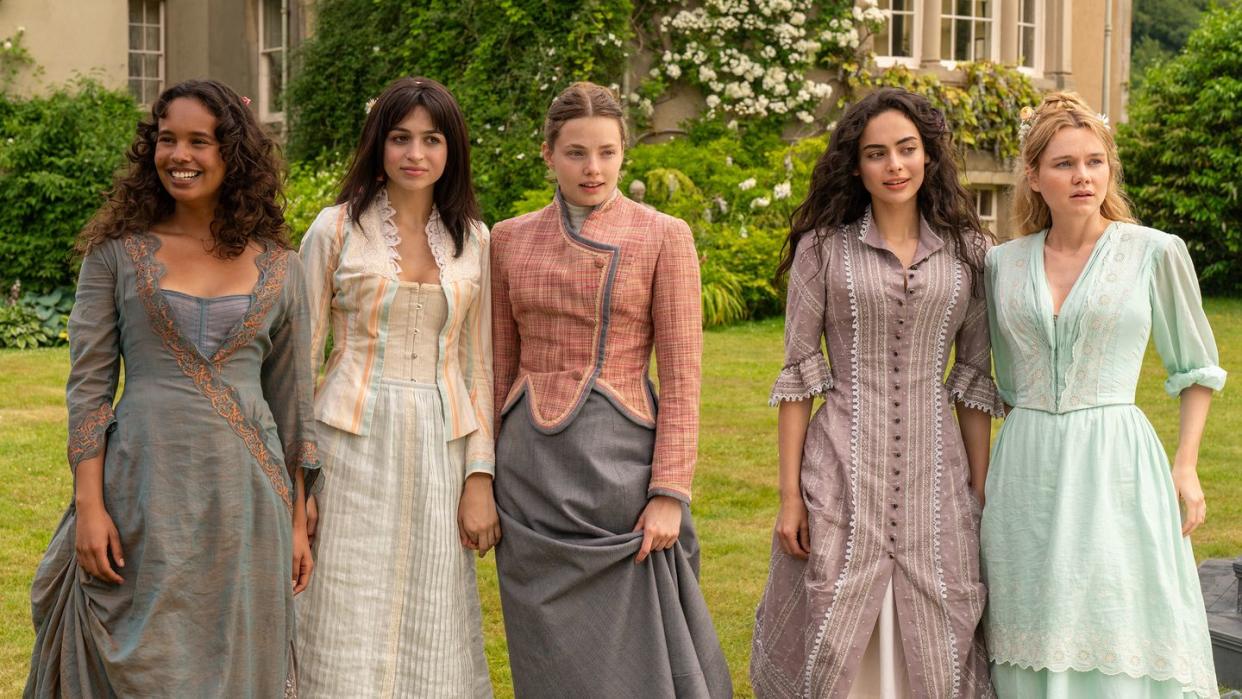
Because it was an unfinished novel, did you feel more freedom to use the characters as a jumping off point?
That was part of it, truthfully. It's not so well known a book as Jane Austen's novels or some other of Edith Wharton's novels—it's very well-loved by people who know it, but because it's not a finished work, there haven't been very many adaptations of it. We did feel that there was more freedom than if it was a well-loved book that everybody had seen a film or a TV version of fifty times. We have changed some of the characters a little bit, and some of them have changed quite a lot, but the spirit of it, and essence, is very similar to the book.
What character did you find the biggest challenge bringing page from page to screen?
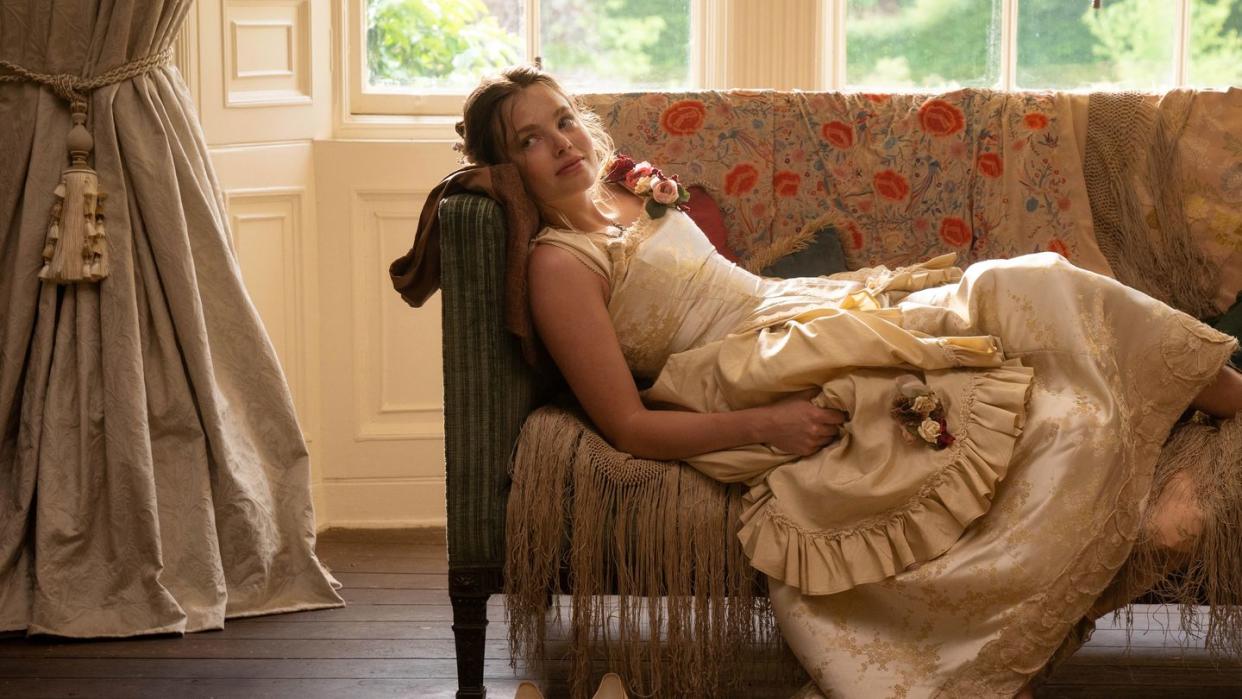
The biggest challenge was probably Nan because she was so important to get right, to make sympathetic, and to have her be our eyes into this world. To make her believable—she's so young, so curious, and so idealistic. We really wanted to get her right, but to not make her that kind of heroine that you always get in books where it's like, 'she's the bookish one' or 'she's the one who's quiet.' We wanted all of the characters to feel very three dimensional, we didn't want to reduce any of them down into [singular] characteristics.
The character that we changed the most from the book is probably Theo, who in the book is called Ushant, the Duke of Trevenick. We quite quickly wanted to change that! We wanted to make him more sympathetic, and less of a bad bet for Nan. We wanted to make it a genuine choice for Nan about which of the two romantic options she gets presented with she ought to be with. We did change the character of Theo probably more than any of the others, just to make it more of an interesting love triangle, really, rather than it just be 'the obvious choice' and 'the bad choice.'
How you avoid those period drama tropes you mentioned, and not make your characters one-dimensional?
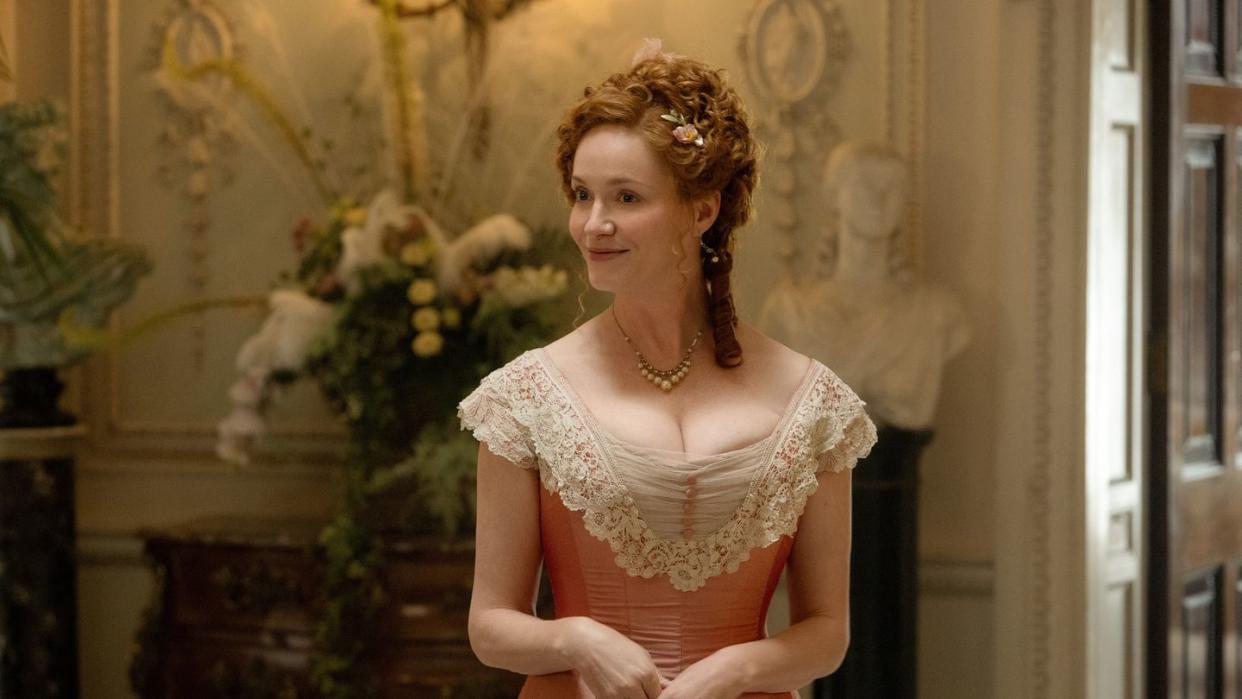
It's very easy to fall into those traps and those stereotypes; we were trying to be truthful with all the characters. The mother characters actually are a really good example of that. The mother character in period dramas is often quite two dimensional—it's Mrs. Bennett in Pride and Prejudice, who is twittery and all she ever is interested in is her daughters getting married. We all love Pride and Prejudice, so I'm not dissing Jane Austen, but you kind of know what you're getting and there'll be that one note throughout, sometimes.
We wanted Mrs. St. George to have elements of that—she is hoping that her daughters get married. But we wanted her to feel like a mother, and the fears and the pitfalls and the mistakes that you make as a mother, and the realization that they're still people. They're not just mothers and that's the end of them. I hope that none of our characters are just one thing and then that's the end of them. They're all slightly more sophisticated, I hope.
What do you think it is about these types of period dramas that we are so obsessed with?
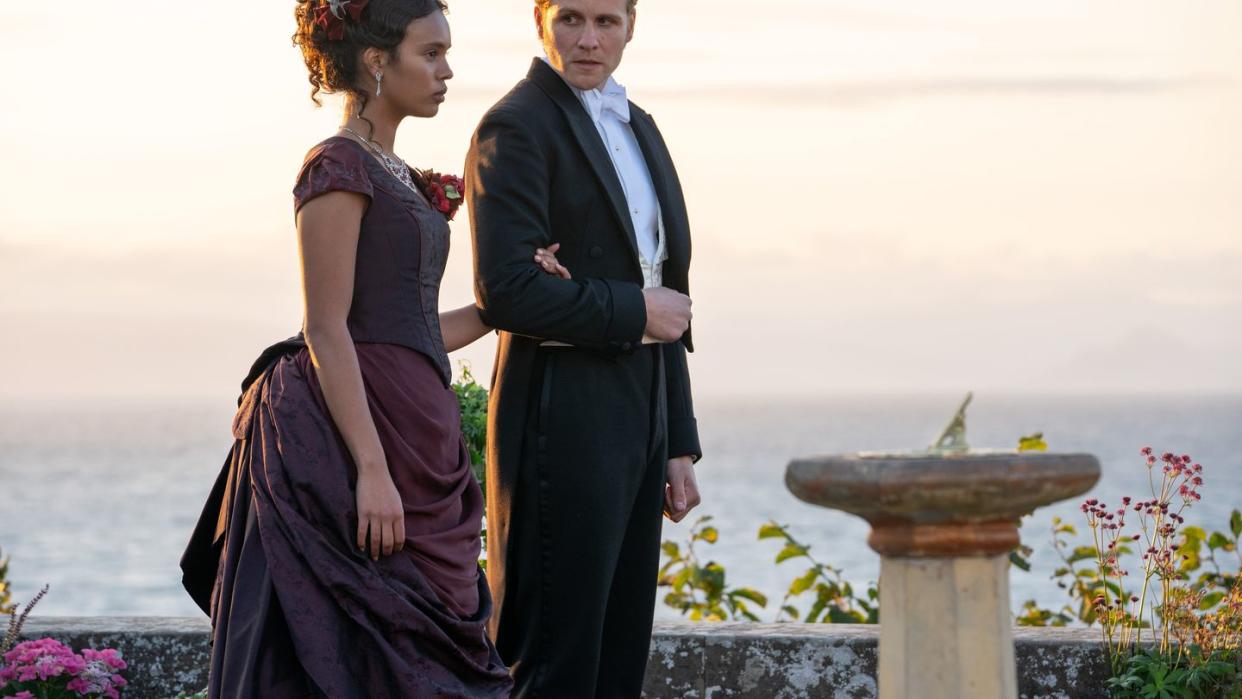
They're irresistible, aren't they? They're so escapist and the wish fulfillment element of them.... I mean, they're beautiful to look at. Most period dramas have amazing landscapes and fantastic houses—all of the scenery, the costumes, the hair and makeup. The sweeping love stories and the romance of the locations; the whole point is, 'Oh, my god, can you imagine being those people?
But I think sometimes period dramas fall into the trap, including many of the period drivers I adore, they are, wouldn't it be amazing to be that person? What we wanted [The Buccaneers] to be was not so much, wouldn't it be amazing to be that person? but, oh, gosh, they are just like we are, to a certain extent. They were just young women who happened to have been born 200 years ago. They had different circumstances and different families, but they're young women having exactly the same fears that we have.
I hope that by modernizing it, to a certain extent, and making that group feel as 2023 as we can—and I think Edith Wharton did a lot of the work for that—we've allowed a viewer to go, that feels familiar.
The first three episodes of The Buccaneers are now streaming on Apple TV+. Watch now
You Might Also Like
